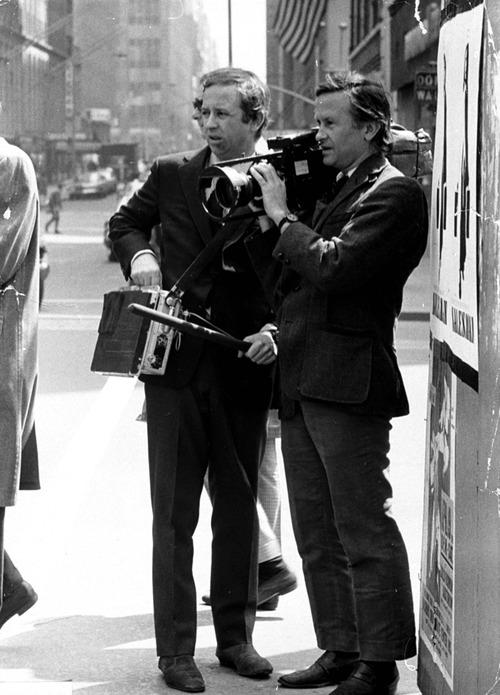No 'Shelter' From Albert Maysles's Camera: How His Rock Docs Captured the Beginning and End of the '60s
 Albert Maysles was the least judgmental of documentary filmmakers, which is one compelling reason that Gimme Shelter holds up as the greatest of rock docs, 45 years after its release. The objective eye that he and his collaborator brother brought to the filming of the Rolling Stones at a critical juncture in their history let viewers fill in their own blanks about whether the tragedy at Altamont represented “the end of the 1960s,” as often proposed, or just a gig gone wrong; about whether the Stones were satanic majesties destined to be the soundtrack to very bad deeds, or could be just as baffled in the face of larger forces as any of us. The Maysles brothers’ dispassion, in the face of rock ‘n’ roll legends who would intimidate just about any other filmmakers, was something you could get passionate about.
Albert Maysles was the least judgmental of documentary filmmakers, which is one compelling reason that Gimme Shelter holds up as the greatest of rock docs, 45 years after its release. The objective eye that he and his collaborator brother brought to the filming of the Rolling Stones at a critical juncture in their history let viewers fill in their own blanks about whether the tragedy at Altamont represented “the end of the 1960s,” as often proposed, or just a gig gone wrong; about whether the Stones were satanic majesties destined to be the soundtrack to very bad deeds, or could be just as baffled in the face of larger forces as any of us. The Maysles brothers’ dispassion, in the face of rock ‘n’ roll legends who would intimidate just about any other filmmakers, was something you could get passionate about.
Albert Maysles died Thursday at 88, having survived by decades his brother, David, who passed away in 1988. In recent years, Albert had directed or co-directed several music-related films commissioned by the featured artists, including the concert film Rufus Wainwright—Milwaukee at Last and The Love We Make, a documentary about Paul McCartney putting together a post-9/11 benefit concert, as well as several films related to classical music. But the movies that remain most valuable to rock fans are Gimme Shelter and a Beatles documentary that captured the foursome at the moment in 1964 that they were just becoming stars, which was released in various cuts under different names, including The Beatles: The First U.S. Visit.
By: Chris Willman
Source:Yahoo Music

